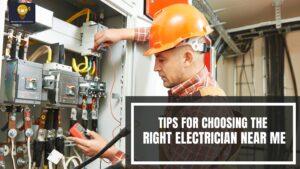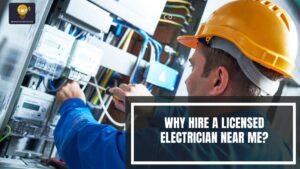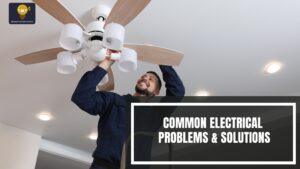Residential Generator Installation: What Homeowners Must Know Before Buying
Ever been left in the dark when the power goes out unexpectedly? Imagine sitting in your living room, lights flickering off, and your fridge humming into silence. It’s frustrating and inconvenient, but it doesn’t have to be this way.
If you’ve ever thought about a home generator installation but felt overwhelmed by all the choices and details, you’re not alone. Many homeowners face confusion about residential generator installation, often putting off the decision until the next blackout. Let’s change that.
In this article, we’ll walk you through everything you need to know about residential generator installation. From how these systems work to what to consider before buying, we’ll make sure you’re ready to make a smart choice. Trust me, once you understand the basics, getting your home generator installed will feel less like a chore and more like a smart investment in your peace of mind.
Why Consider a Home Generator Installation?
First things first, why should you even think about a home generator installation? Power outages are more common than you think, whether from storms, accidents, or utility work. When the lights go out, everything from your heating system to your refrigerator and even your internet connection stops working. If you’ve ever experienced this, you know how quickly life can get disrupted.
The problem is, relying solely on utility companies means you’re at their mercy. These blackouts can last for hours, sometimes days, depending on the situation. It’s especially problematic if you have young kids, elderly family members, or medical devices that depend on electricity.
That’s where residential generator installation steps in as a solution. A home generator can automatically kick in when the power goes out, keeping your home running smoothly. No more worrying about spoiled food or freezing in the dark. It’s like having a safety net for your electricity.
Types of Home Generators: What’s Best for You?
When it comes to home generator installation, understanding the different types of generators can save you from buyer’s remorse.
Portable Generators:
These are smaller, more affordable options that you can move around. They require manual setup and fuel, usually gasoline. While useful for short outages or specific tasks, they aren’t the most convenient for whole-house power.
Standby Generators:
These are permanently installed outside your home and connect directly to your electrical system. Once installed, they automatically detect power outages and switch on within seconds. They usually run on natural gas or propane, which means they keep going as long as the fuel supply holds out.
Most homeowners who want a hassle-free experience go for standby generators. Yes, they cost more upfront, but the convenience and reliability make the investment worthwhile.
What to Expect During Residential Generator Installation
Planning for residential generator installation means knowing the process ahead of time. Here’s what typically happens:
- Site Evaluation: A qualified electrician will assess your home’s electrical system and determine the best location for the generator. It needs to be close enough to your main electrical panel and fuel source while also complying with safety regulations.
- Sizing Your Generator: This step is crucial. You’ll need a generator that can handle your home’s power needs. Too small, and it won’t run everything you want; too big, and you’ll waste money. Your electrician will help calculate the right size based on your essential appliances and systems.
- Permitting: Residential generator installation usually requires permits from your local municipality. Your electrician or installer should handle this, but it’s good to know.
- Installation: Once all approvals are in place, the installation begins. This includes mounting the generator, connecting it to your home’s electrical system, and setting up the fuel supply.
- Testing and Maintenance Tips: After installation, your electrician will test the system to confirm it kicks in during a power outage. They’ll also explain basic maintenance you should keep up with to confirm your generator is always ready.
Common Misunderstandings About Home Generator Installation
It’s normal to have questions or concerns before a residential generator installation. Let’s clear up some common myths:
Myth 1: Generators Are Too Noisy to Use at Home
While older models were loud and disruptive, modern home generators are surprisingly quiet. Manufacturers design standby generators to run with minimal noise so you won’t even notice when they kick on.
Myth 2: Installation Is Complicated and Takes Weeks
Most residential generator installations can be completed within a day or two. Your electrician will guide you through the timeline and keep everything on track.
Myth 3: Generators Are Too Expensive
Yes, there is an upfront cost, but consider the long-term value. The cost of spoiled food, damaged electronics, or hotel stays during extended outages adds up quickly. A generator installation is an investment in safety and convenience.
Choosing the Right Professional for Your Residential Generator Installation
Who you hire to install your home generator matters a lot. Working with a qualified electrician confirms the job is done safely and meets all electrical codes.
Look for these qualities:
- Licensed and insured
- Experience with residential generator installation
- Positive reviews or recommendations
- Clear communication and willingness to answer your questions
When you find the right professional, they’ll walk you through the entire process and make you feel confident about your investment.
Maintenance Matters: Keeping Your Generator Ready
After installation, don’t just set it and forget it. Regular maintenance keeps your home generator reliable when you need it most.
Tips include:
- Running the generator monthly for a short period
- Checking oil and coolant levels
- Inspecting air filters and spark plugs
- Scheduling professional checkups annually
Proper care means your generator will start every time the power goes out. It’s peace of mind worth the small effort.
Should You Buy or Lease Your Home Generator?
A common question is whether to buy a generator outright or lease one. Both options have pros and cons.
- Buying: You own the generator and can customize maintenance. It’s a bigger upfront investment but often cheaper over time.
- Leasing: Monthly payments can be easier on your budget, and some companies include maintenance. However, you don’t own the unit, and you might pay more overall.
Think about your financial situation, how long you plan to stay in your home, and how often you expect to need backup power.
Final Thoughts:
Now that you know what residential generator installation involves, you can make an informed decision. No more second-guessing or feeling overwhelmed.
Remember, a home generator installation isn’t just about keeping the lights on; it’s about protecting your family, your comfort, and your peace of mind. If you’re ready to take the next step, consult a qualified electrician today to discuss your needs and get a clear quote.
Don’t wait for the next blackout to regret not being prepared. You deserve a home that stays powered, no matter what.
If you want to learn more about residential generator installation or schedule a consultation, visit ntelectrician.com to get started.
FAQs About Residential Generator Installation
Q1: How long does a typical home generator installation take?
Most installations take between one and two days, depending on your home’s electrical system and the generator size. Your installer will give you a clearer timeline during the site evaluation.
Q2: Can I install a home generator in a small yard or limited space?
Absolutely. Many modern generators have compact designs that fit in smaller spaces. Your electrician can help find the best spot that meets safety requirements, including distance from windows and vents, and local codes.
Q3: Can I install a generator myself to save money?
It’s strongly recommended to hire a licensed electrician for residential generator installation. Incorrect installation can be dangerous and may violate local codes or void warranties.
Q4: How much does a typical home generator installation cost?
Costs vary widely based on generator size, fuel type, and installation complexity. On average, you can expect to pay between $5,000 and $15,000, including the generator and installation.
Q5: Will my insurance premiums go down if I have a generator?
Some insurance companies offer discounts if you have a standby generator because it reduces the risk of property damage during outages. Check with your provider to find out.
Q6: How do I know what size generator I need?
Your electrician will help you calculate the load requirements based on your essential appliances and systems. It’s better to size it for your critical needs than your entire house to keep costs reasonable.



